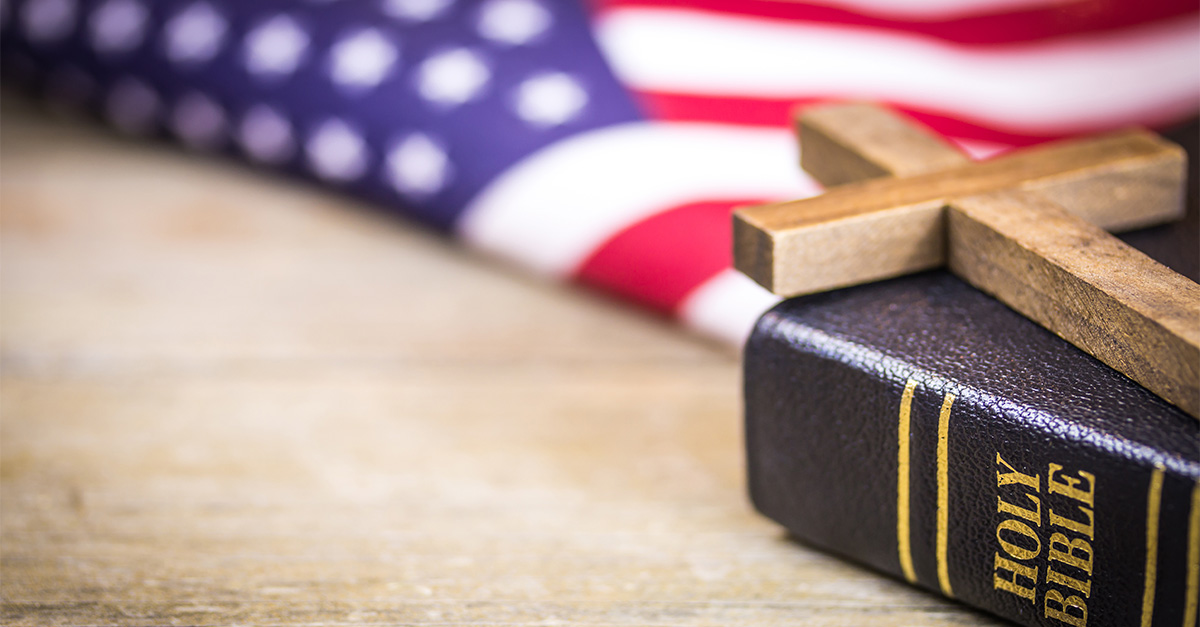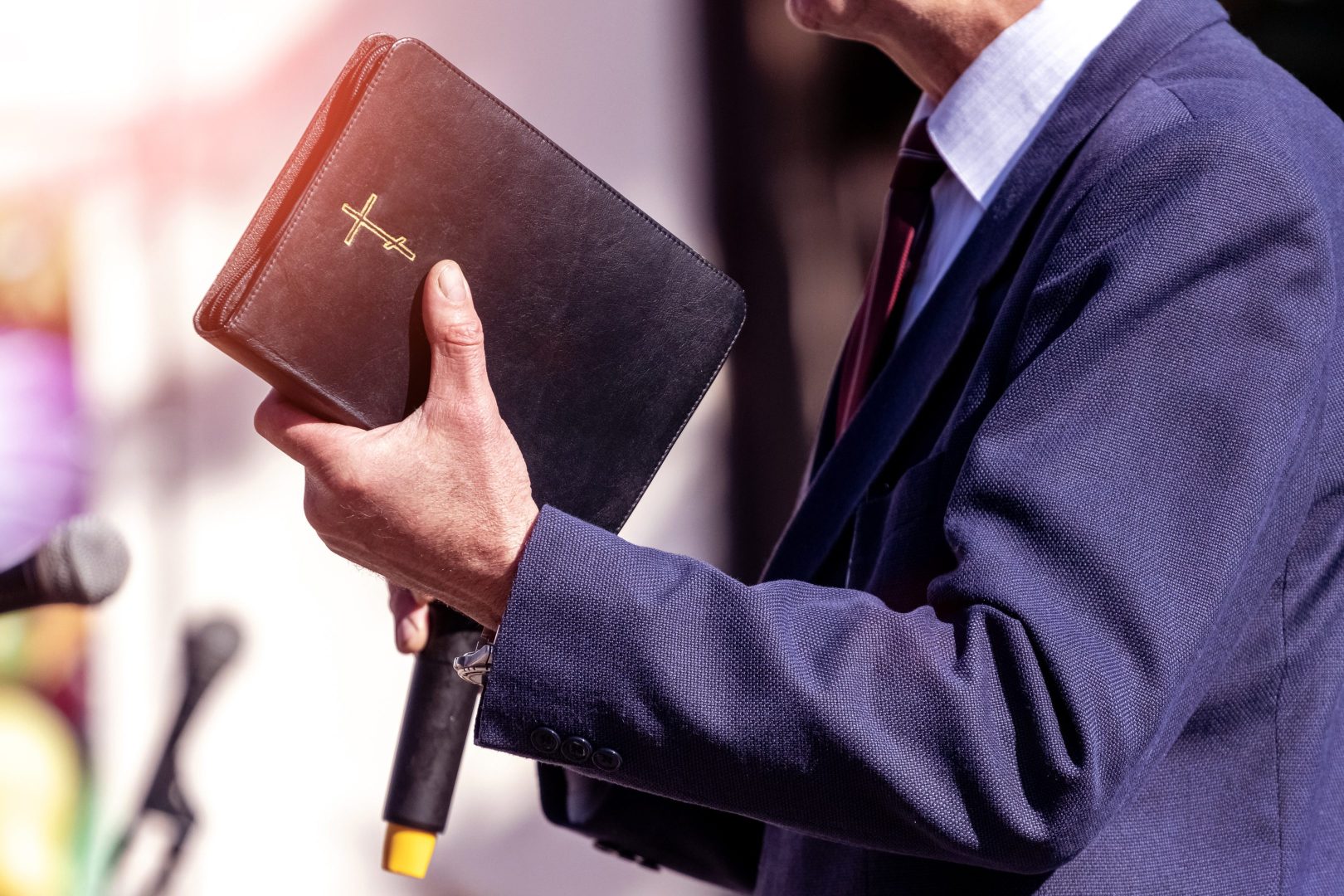


Get a free copy of Parental Rights & Education when you subscribe to our newsletter!

“In an effort to remain apolitical, many Christians have bowed at the altar of neutrality, which actually isn’t neutral at all. It’s godless and wicked, and it certainly doesn’t reflect a biblical worldview because neutrality doesn’t exist. To be neutral is to be lukewarm…”
–REAGAN ESCUDÉ SCOTT
How do you justify being a Christian and being involved in politics?
I was asked this question recently, and to be totally honest, it caught me off guard. I have strong opinions about what the Christian’s role in politics is, but I don’t think I’ve ever considered how I can reconcile my faith with simply being politically involved.
I’ve never even considered politics and Christianity to be in conflict with one another. After all, no one asks doctors how they can reconcile being a Christian with working in medical science. No one asks teachers how they can reconcile being a Christian with teaching state-sanctioned curriculum in the classroom.
So why is it that there is confusion when it comes to Christianity, policy, and government?
Isn’t the government an institution designed by God, given to us for the purpose of rewarding what is good and punishing what is evil (1 Peter 2:14)? Should we not care whether the government effectively does that?
It’s a lie from the world that Christians cannot be involved in or care about politics. Satan loves nothing more than to convince well-meaning Christians that it is anti-Christian to care about issues like abortion, education, crime rates, our justice system, war and foreign affairs, and the cost of living or to hold accountable leaders who have been entrusted to rule on behalf of these issues.
As Christians, we are allowed to have a biblical worldview when it comes to all things — except for the very policies that are most deeply embedded in our society and our culture and that most deeply affect the state of our nation.
This is all wrong. If we are commanded to love our neighbor as ourselves, then part of loving our neighbor requires us to care about the things that affect them directly.
Policy affects people.
Policy affects our neighbors.
The leaders in charge who make and enforce the policies affect our neighbors.
Consider, for example, that the FBI recently raided the homes of several anti-abortion activists, while 11 peaceful protesters who gathered in the hallway of an abortion facility to sing and pray have been federally indicted on charges that allege conspiracy to block the abortion facility’s doors to prevent patient and employee entry. If convicted, they could face up to 11 years in prison and fines up to $250,000. Just last month, pro-life activist Mark Houck’s home was raided by the FBI over an incident at an abortion facility in which Mark allegedly pushed an abortion escort who was verbally accosting his twelve-year-old son.
Meanwhile, dozens of pregnancy resource centers, churches, and facilities have been firebombed, vandalized, and destroyed since the Supreme Court’s Dobbs decision that overturned Roe v Wade, and no arrests have been made to date.
Should it be of concern to the Christian that their fellow believers are being targeted by what has become a federal police force? Should it be of concern to the Christian that the actual criminals who have destroyed property and livelihoods are able to walk free without consequence? My answer would be yes.
See, the problem is, many Christians have adamantly convinced themselves that it is sinful to align with a particular political party. In an effort to be “neutral,” these same Christians, including well-known, platformed evangelical leaders, have refused to take a stance on urgent political issues because it might expose them as supporters of said party.
In turn, they refuse to speak out on abortion, the dangerous implications of illegal immigration, the atrocities committed by Antifa and Black Lives Matter during the summer of 2020, the lives destroyed by tyrannical COVID lockdowns, the mutilation of children in hospitals around the country, the sexual predation occurring in public schools, or the soft-on-crime policies destroying American cities and threatening the lives of residents.
This is a dangerous place to be for a Christian. In an effort to remain apolitical, many Christians have bowed at the altar of neutrality, which actually isn’t neutral at all. It’s godless and wicked, and it certainly doesn’t reflect a biblical worldview because neutrality doesn’t exist. To be neutral is to be lukewarm is to be godless is to be spit out of His mouth in the end (Revelation 3:15-16).
We have to stop looking at these issues as political issues. Every single one of them is a moral issue which has been politicized, and Scripture provides us with the wisdom needed to know exactly how we should view them as Christians.
Abortion is a moral issue because it is murder.
Illegal immigration is a moral issue because woman and children are being sex trafficked, thousands of pounds of fentanyl are putting lives at risk, and American lives are being put in danger.
Transgender ideology is a moral issue because it denies that God made man and woman in His image, it is a means of sexual grooming among children, and it has resulted in the permanent destruction of children’s bodies.
Soft-on-crime policy is a moral issue because law-abiding citizens are being subjected to murder, theft, rape, assault, and the like.
Do you see what I’m getting at here? All of these issues overwhelmingly affect our neighbors, yet so many Christians have stood on the sidelines as if they have blindfolds over their eyes.
God put us here to be good stewards of this earth. That means we shouldn’t just be good stewards of our homes and our churches, but in any sphere of influence we might be given. We must be good stewards in the schools of our children, in our workplaces, online, and at the ballot box.
We must stand for truth and point people to Christ, no matter the cost. Isn’t that what Christ called us to do in this world?
It is very possible to have a biblical stance on political issues which points people to Christ — and that is exactly the position we should hold when it comes to reconciling our faith with policy. The best way to be a good steward is to love our neighbor — and one of the best ways to love our neighbor is to care about the policies that affect them.
Follow Reagan on Twitter! @thereaganscott
Ready to dive deeper into the intersection of faith and policy? Head over to our Theology of Politics series page where we’ve published several long-form pieces that will help Christians navigate where their faith should direct them on political issues.

Notifications